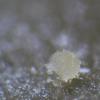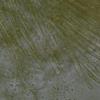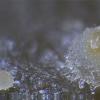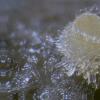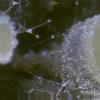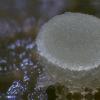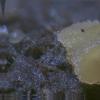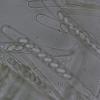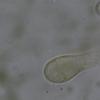
09-11-2025 13:20
Hello.A tiny ascomycete, appearing as erupting gra

08-11-2025 00:29
 Francois Guay
Francois Guay
I found this species in Quebec, Canada, on herbace

04-11-2025 09:07
Hello.A suspected Hymenoscyphus sprouting on a thi

04-11-2025 12:43
 Edvin Johannesen
Edvin Johannesen
Hi! One more found on old Populus tremula log in O

03-11-2025 21:34
 Edvin Johannesen
Edvin Johannesen
These tiny (0.4-0.5 mm diam.), whitish, short-stip
Ceilymenia granulata
Joop van der Lee,
01-12-2020 11:10
 Found on cow dung.
Found on cow dung.This species has a specific developement stage especially when it comes to the colour of the disk.
It do not know if this has something to do with the state of the dung for there is some difference between fresh dung and older dung.
This series of photo's is from species on older dung.
At first it does not look like it developes an orange colour but inside the fruitbody immature paraphyses have a deep orange colour because of the particles inside.
No asci where observed.
During the maturity process it developed an orange centre but that did nor result in a fully orange coloured distk.
The only darker disks I could find were the onces who did stick together.
Disks are surrounded by thickwalled globose hyaline cells measuring 39 to 54 um in diameter.
The excipulum is covered with long hyaline cells measuring 125-150x50-60 um.
Paraphyses: septated; 5.9-6.5 um enlarging at the top 12.5-13.5 um filled with orange particles.
Asci: 117-127x9.0-10.5 um; with a short stalk.
Spores: uniseriate; 12.0-13.5 um; surrounded by a small gelatinous sheath.
Apart from the first and double connected species I did not make a full research, that I did with the next series.

